|
Like many of us, one of the prayers I learned growing up was the prayer to St. Anthony – “St. Anthony, St. Anthony, please come around. Something is lost and must be found.” I put St. Anthony on the back shelf through my teenage years and into adulthood, but as I aged, I realized more and more that I need help and guidance to live a good and faithful life. One day, while I was traveling, I left an expensive set of headphones on a plane. I did not realize it until later in the day when I was checking my briefcase in preparation for a meeting. It would be days before I could return to the airport. I trusted those earphones into St. Anthony’s capable hands. Three days later, I arrived late to the airport, went to my gate, remembered my prayer to St. Anthony, had time to go to the lost and found, and there were my headphones. Since then, I have relied on St. Anthony numerous times to find my phone, keys, or that elusive book. I must confess, I am a bit shy sharing my emerging devotion to St. Anthony. It borders on superstition, no? Superstition is when I believe that what I do – say a prayer – causes St. Anthony to act. The saints contemplate God, praise him, and “constantly care for those whom they have left on earth.” (CCC 2683) Evoking St. Anthony does not change God. It changes me. The more I learn about St. Anthony (1195-1231), the more I want to know. He was born into wealth and privilege, joined the Augustinians at a young age and, at 19, was ordained and served as the guest master. That is how he met the Franciscans. He was drawn to their life of mission to the poor. He immersed himself in scripture and, just by happenstance, was discovered to be a remarkable preacher. Eventually, St. Francis (1181-1226) himself entrusted the formation of the Franciscans in theological studies to Anthony – balancing the rigors of the academy with the simplicity of the Franciscan life. After the general chapter in 1226, he was made Provincial Superior of northern Italy and settled in the city of Padua. In 1228 he served as the Franciscan envoy to Pope Gregory IX. His preaching was so amazing, he was commissioned to produce a collection of his homilies. There are many miracles attributed to St. Anthony. There are two that I find particularly compelling. Anthony had a book of psalms that was very important to him. He wrote notes in it to help him instruct his students. A novice, who decided to leave the order, took it. St. Anthony prayed for its return. Not only did the thief return the book, but he also returned to the community. The Eucharistic miracle attributed to St. Anthony occurred when he was challenged by a heretic about the real presence of Christ in the Eucharist. The heretic brought a hungry mule and showed him fresh fodder. St. Anthony brought a monstrance with the Blessed Sacrament. The mule ignored the fodder and bowed before the Blessed Sacrament. St. Anthony became ill with ergotism, a disease caused by a fungus found in rye and other cereals. He went to a woodland retreat to recover and died on his way back to Padua on June 13, 1231. More and more I am asking St. Anthony to “come around” to guide me in my own ministry within the church, my family life, and my daily life in these uncertain times. My prayer is that we will take the time to “come around” to St. Anthony and learn from this remarkable saint. He can guide us in rooting our lives in the scripture, cultivating a deep love for the Eucharist, and living a life spent in service to others. I will still ask St. Anthony to help me find my headphones – but I will also ask him to help me “hear” the word of God and act on it. **This photo is from: https://aleteia.org/2019/12/21/why-is-st-anthony-of-padua-depicted-holding-the-child-jesus**
0 Comments
I think there is something special about a cover—about taking a song, a painting, or a movie and recreating it within the modern frame of mind. Aretha Franklin’s bold and unapologetic “Respect” is a perfect example, as she interprets the song as a Black woman in the 1960’s. As is Jimi Hendrix’s “All Along the Watchtower,” in which he narrates the song with hauntingly beautiful guitar riffs. In visual art, Andy Warhol recreates the portrait of Mao Zedong with a messy array of bright colors—an unusual depiction of the dictator. Finally, modern movies, headlined by the Cohen Brothers’ True Grit, give life to old characters and stories, recreating them for new audiences. However, even the Beatles, the most covered band of all time, cannot compete with the millions of interpretations of Jesus Christ. Thousands of artists have painted Christ crucified or the Madonna and Child. Everyone from Van Gogh, Basquiat, or da Vinci have painted Jesus Christ, each in their own manner. It can be mind-numbing to try to flip through them all, viewing each painting, alien to the others, and, oftentimes, to us. There are always two questions to ask when discussing art: “What is this artist trying to say?” and “What do we think he or she is trying to say?” These questions matter much more when investigating faith. In a special way, how artists of all disciplines—including sculptors, writers, or directors—interpret Jesus will affect us. Every Catholic, no doubt, thinks of Jesus through some piece of art or another, but Jesus is more than just a collection of paints, words, or images. Jesus is alive. It is tempting to trap Him in a Caravaggio, an El Greco, or even in the Passion of the Christ—to prevent Him from challenging us. Jesus as represented in art cannot call us out in our sins; He cannot tell us the hard truths we need to wrestle with. Even further, we should not trap Jesus in the Church or solely in the Mass. Yes, we are oftentimes challenged in specific ways during the Mass, especially when a priest gives a difficult homily. It can be easy, however, to selectively hear the priest, interpreting him and hearing only what we want to hear. We often want a sanitized Jesus, one that affirms us and makes us feel good. But while Jesus resides in the tabernacle and comes to meet us in every celebration of the Eucharist, He cannot be left there. Jesus wants to encounter us personally in order for us to help others encounter Him. Jesus always challenged His disciples to worship, act, and believe in accordance with truth. Jesus was not “sanitized” or acting in the “proper way” when He overturned the tables of the money changers; He was not “sanitized” when He described the narrow way; and He surely was not clean and tidy when He died on the Cross. Jesus defied our expectations. He was filled with passion for God’s truth. While He is Beauty itself, Jesus often made His listeners look away as they were unable to embrace the unsavory truth that can be hard to swallow. I enjoy going to Washington’s National Gallery of Art or New York’s MET, but next time I see Christ there, I will be reminded that He is not trapped in the golden walls of the frame. Jesus is alive, living in the Eucharist and in others. While it is beautiful to witness Jesus in the arts, we must remember that Christ lives in the audience, the museum goers. While the beauty of the art itself is mesmerizing, Christ is alive in flesh, both on the altar and in people who remind us that, while beautiful, Christ’s message is a challenge. **This blog was originally published on April 13, 2021.** In Advent, we are asked to keep two themes of the season in mind: the birth of the Christ child and preparation for his arrival to Earth again to end time. These great events, that of God descending in human form to Earth to save us from our sins by his death and resurrection, and the end of time with his arrival through the second coming, are powerful and mystical events. I often forget to focus my thoughts on this period from just before Thanksgiving until just before Christmas begins. One way over recent years that has helped me remember this awe-inspiring season of hope and repentance is through listening to one of my favorite Advent hymns: Let All Mortal Flesh Keep Silence. As a brief refresher, it is a song whose lyrics are based on the Divine Liturgy of St. James and has been used as a hymn in Greek since around the third or fourth century. Speaking about the awesome power of Christ and his gift to us through the Eucharist in vanquishing the powers of hell and bringing eternal light, this hymn was revitalized during the Oxford Movement of the 19th Century and adapted to English. For Catholics, we believe in the Real Presence, so our understanding and awe hopefully go much deeper when sung with lyrics such as: “King of kings, yet born of Mary, As of old on earth He stood, Lord of lords, in human vesture, In the body and the blood; He will give to all the faithful His own self for heav'nly food.” For me, this song about Christ Jesus descending and giving of his own life and blood for us – simply because he loves us – is a powerful and calming reminder of what Advent is really about. It is not just about Christmas, and the gift giving, or even just the celebration of Christ’s birth. His birth is not what saved humanity. It was his sacrificial death and gift of the Eucharist that provides us that opportunity to join him in heaven for eternity as fulfillment of the covenant between God and his people. In a season with some of the darkest and coldest days for us in America, a song like this helps us remember that even in our darkest moments, Christ is there as a hopeful light. While the season of Advent is wrapping up, I invite you to take a few moments during your busy season to reflect on the power and awesome love of God’s gift to us, and the preparations we need to make for his return.
As we enter into the second week of Advent, I am drawn to reflect on Mary’s advent 2000 years ago. This period of preparation can be difficult to enter wholly into, especially in a secular world that desires to skip straight to Christmas, but one way to more fully experience the anticipation of Advent is to look to Mary. We can observe how to live out her anticipatory advent of bringing Christ to others in silence every time we receive Our Lord in the Eucharist. When Mary gave her ‘fiat’ at the annunciation, the Christ-Child was made incarnate in her womb, and she spent nine months silently bearing Christ within her and bringing Him to every person she encountered. How radical that intimacy must have been, to be the only soul on earth who knew Christ, the only one to match heartbeats with Him, to be the source of life for the savior of the world. And yet, this time of intimacy was one of great silence and humility. The Christ-Child in the womb did not make a sound, for the first several months there was little sign that Our Lady could take consolation in His presence besides the promises given to her during the Annunciation. In that silence the only way Our Lady could know her Son and King was through allowing herself to become so silent as to hear the heartbeat they shared. This silence leads to the humility of Our Lady giving all of herself to Our Lord, and this humility of laying her life down fully leads to her willingly bearing the persecution of her advent. In the greatest humility, Mary walked around Nazareth bearing the King of the Universe, and allowed assumptions of her character to be made. She did not make a scene with those she encountered, announcing loudly that she was the Theotokos, but rather allowed Christ to work in the silence, as seen in the narrative of the Visitation, when the child within Elizabeth’s womb leaps for joy at an encounter with Christ. It is in all of these reflections that we as children of Mary learn how we are also supposed to live in advent. Like Mary, we hold the Christ-Child so intimately within our very bodies every time we receive the Eucharist. We get to experience our own advent each time Our Lord enters humbly into us – the simple veil of bread and wine mimicking the simple veil of infancy which hides, from those who do not hold Christ, the reality of His presence. We have nothing we could give our King that would be a worthy offering, so we offer Him our lives. We allow Him to transform us into living tabernacles, our breath becoming His breath, our steps becoming His steps. We carry Him in our hearts and through the silence of our witness, allow Him to encounter the people we meet. Through living our lives in recognition that we carry Christ in our hearts, we grow in desire to bring Him to those we encounter first before we bring ourselves, and we learn to live in a perpetual advent, like Our Lady, allowing Our Lord to become the source of life within us.
A few weeks ago, the Pew Research Center released an article titled “Just one-third of U.S. Catholics agree with their church that Eucharist is body, blood of Christ.” Immediately after the study’s release, social media erupted with reactions of disbelief, shock, and anger, as well as theories of how to “fix this,” including greater catechesis and adjustments to our general liturgical practices. Despite the immediate reaction, there is no need for panic, as Christ assures the Church that “the gates of the netherworld shall not prevail against it,” (Matthew 16:18). Furthermore, jumping to such dire conclusions after one survey is not necessarily good pastoral or catechetical practice. As the Church examines the status of belief in the Real Presence and how to cultivate a greater understanding of that reality, she is also very aware of the need to deepen our encounter with Christ. As we ponder Christ’s presence in the Eucharist, we must ask ourselves if we have truly encountered him. In his encyclical letter Evangelii Gaudium, Pope Francis suggests that we “look at those first disciples, who, immediately after encountering the gaze of Jesus, went forth to proclaim him joyfully: ‘We have found the Messiah!’ (Jn 1:41).” In the end, how we catechize and what our liturgical practices are both require deeper reflection and greater discernment as to how God is calling us to use them as methods of ongoing conversion and evangelization. The doctrines and dogmas that we teach, how we celebrate the Mass, how we best serve our fellow man, are all likely to fall on deaf ears if they are not built on a deep and personal encounter with the Risen Christ. To examine this issue of Eucharistic belief, we should first look to chapter 4 of Christus Vivit, where Pope Francis reminds young people (and all of the people of God) that God is love, he saves us, he gives us life, and he is alive! If these four truths, which are expounded upon in good catechesis and experienced in their fullness in the Mass, are not understood deeply and intimately in the heart of every baptized Catholic, then moving forward will be extremely difficult. If I do not know Christ as the one who saves me, who walks with me through my life, as the one who gives me life, then why does it matter if it is truly his Body and Blood that I receive in its fullness at the Mass? Similarly, if we don’t understand the Kerygma—the mystery of the salvific work of God culminating in the passion, death, and resurrection of Christ—then how can we begin to understand the mystery of transubstantiation (CCC1376), especially when philosophical distinctions like matter and form aren’t in the everyday vocabulary of most Catholics? Pope Francis reminded pilgrims of this reality during a November 2017 General Audience when he said, “Every celebration of the Eucharist is a ray of light of the unsetting sun that is the Risen Jesus Christ. To participate in Mass, especially on Sunday, means entering in the victory of the Risen, being illuminated by his light, warmed by his warmth.” Pope Emeritus Benedict XVI famously wrote in his encyclical letter Deus Charitas Est, “Being Christian is not the result of an ethical choice or a lofty idea, but the encounter with an event, a person, which gives life a new horizon and a decisive direction.” I certainly don’t have the “easy fix” answer as to how to increase belief in the real presence in the Eucharist, but I heartily believe that it begins with a renewed sense of the encounter Pope Benedict XVI was writing about. We use the word “renewed” because even those of us who profess our faith in the Risen Lord are invited “to a renewed personal encounter with Jesus Christ, or at least an openness to letting him encounter them; I [Pope Francis] ask all of you to do this unfailingly each day” (Evangelii Gaudium). We must witness to the encounter that has given our lives “a new horizon and a decisive direction,” and share that with those whom we meet. When we accompany our brothers and sisters on their journey to know Christ more fully, we help them to encounter him in the way that the Holy Spirit guides them. If that encounter is through theological and philosophical distinctions, through service, through the liturgy, etc. then praise God, because it is through him that those are effective and not because of their own merits. As we continue to wrestle with this recent study and its implications, may we meditate on this: if we believe that the Eucharist changes us, strengthens us, heals us, then we must show it, we must witness to it authentically and humbly in all circumstances. **This blog was originally published on August 29, 2019.**
I spent my high school years at an all-boys Jesuit school in downtown Cleveland. It was an excellent experience where I met some wonderful people, had lots of fun, and started to be formed into the man I am today. Amidst all the craziness that came with going to school with fifteen hundred teenage boys, some of my fondest memories come from my time spent in a little chapel hidden in the hallway of one of our main academic buildings. Every week during free period, the Jesuit priests celebrated daily Mass in this little chapel for our school community. It was a very small space, maybe fitting twenty people if it was really packed. Some days it was full of faculty, staff, and students, but there were a handful of times when it was just the priest and me.
There is something quite unique about celebrating the Eucharist in such an intimate setting, especially when it is just you and the priest. First, there is enormous pressure to get all the responses right, as there is no one to back you up if you forget a line in the Penitential Act. Additionally, it feels like you are right up close to the action, not only seeing what the priest does, but even hearing some of the extra prayers that priests usually say to themselves in a larger setting. Looking back on these memories, these Masses are a reminder that the Mass is not just a nice occasion for Catholics to gather for an hour to pray together. The Mass is the eternal worship of the Son to the Father; through the priest, Jesus’s Paschal Mystery is made present, and the perfect love of the Trinity is on full display. In this sense, the Eucharist is not about us just eating a little piece of bread we believe to be Jesus’ body; it is about the Father and Son’s perfect love for one another, which does not depend on whether there’s one person or one thousand in the pews. While these small, intimate Masses hold a special place in my heart, something about them felt incomplete. There was no one to shake hands with at the Sign of Peace. Mine was the only voice responding as the Holy Scriptures were being proclaimed, and receiving Communion took about fifteen seconds. This reveals the mysterious truth that while the Mass is primarily the eternal worship of the Son to the Father, because of the Incarnation and Paschal Mystery we are destined to be united with Christ in His worship of the Father and the love of the Holy Spirit. When we go to Mass, we are brought into this divine mystery not just as individuals, but as a community. The Eucharist is the Body of Christ, and it brings us members of the Church (also the Body of Christ) into deeper communion with God and with one another. Considering this, I’d like to suggest three different levels on which we might view the Mass. At the end of the day, these are all describing the same Eucharistic mystery, but it may help us to truly appreciate what is going on when we go to Church. First, we witness up close the eternal worship of the Son given to the Father through the Holy Spirit. The powerful, mysterious, life-giving love of the Trinity is on display, which is quite simply mind-blowing. The God who spoke the stars into existence and took on flesh to save us has come close to show us His inner life. Secondly, we don’t simply watch all of this happen, but we actually get to receive it. This happens through the proclamation of the Scriptures, where we receive God’s word, and then through the reception of the Eucharist, where Jesus’s flesh and blood mingle with ours, and we receive the very life, love, and peace which we witness in the Trinity. Thirdly, we are gifted with the ability to experience all of this not just on our own, but alongside our brothers and sisters. Jesus came not just to reconcile humanity with God, but also to reconcile us with one another and with ourselves. So there is a level where God is relating to God, a level where God is relating to me, and finally a level where God is relating to all of us together, and we relate to one another. So next time you go to Mass, ask the Holy Spirit for the grace to truly see the different layers of divine activity at play in the Eucharistic celebration. Ask for the grace to see that Mass is more than just a gathering of believers. Ask for the grace to see God’s jealous love poured out for you as an individual in the Eucharist. Ask for the grace to see how the Eucharist unites us as the Church. The Eucharist is not about us, but it also is. God desperately desires to draw us into His love and communion as one Church, and in the Eucharist, He has given us an incredible gift which does just that. May we let Him draw us in.
“Dear young people, the happiness you are seeking, the happiness you have a right to enjoy has a name and a face: it is Jesus of Nazareth, hidden in the Eucharist. Only He gives the fullness of life to humanity!” – Pope Benedict XVI, Address to Young People, Apostolic Journey to Cologne on the Occasion of the 20th World Youth Day
Growing up as a cradle Catholic, it was always easy to take the Eucharist for granted. Even though I recognized the true presence, it was tempting to see Holy Communion, adoration, and Jesus being present in the tabernacle as a bonus to the faith and not the foundation of the way I lived my life. Now that I serve in youth ministry, I see that this line of thinking too often becomes the norm for young Catholics. But what happens when young Catholics live a life centered around the Eucharist, when they allow themselves to be consumed by Christ, finding complete freedom in complete surrender? They begin to live in their identity as beloved sons and daughters. I got to witness this transformation firsthand this summer serving as a missionary with Catholic Youth Summer Camp. Every week, I watched middle school and high school students meet Jesus in the Eucharist for the first time, experiencing His love and feeling the truth of their identity in a real, tangible way. And every week after these experiences, there was a shift in the way these kids lived their lives. It was as if they were no longer afraid of being judged or not accepted by the teenagers around them; instead, they were confident in the sufficiency of the love they felt from God. When the campers started to recognize and feel the truth of their identity as sons and daughters, when they realized that they can look into Jesus in the Eucharist and physically see that truth, they no longer cared about the opinions of the people around them and would do whatever brought them joy. This often looked like the small but life-changing steps of fully entering into the Mass and worship, taking times of prayer seriously, and having childlike fun and joy throughout the day. Throughout the summer, I began to realize that the experience that these teenagers had in their first moment of encounter with Jesus, the childlike joy and freedom they experienced, is not an experience for them—or for children—alone. All of us, including You and I, are all seen by the Father as His beloved daughters and sons, and He desires to show us that truth and the love He holds for us in a real, tangible way through the Eucharist. Every time we receive Jesus into our bodies, every time we spend time gazing into His face in adoration, we give Him the opportunity to remind us of how unconditionally loved we are, how we belong with Him and nothing else. These truths give us the freedom to not fear what waits in the world, nor fear the chains of sin or worldliness. They help us recognize that there is no fear in the perfect love we experience living in Jesus Christ, and the only thing we have to worry about is following His will. When the world is not something to fear, we can recognize creation as the gift that it is and receive what the Lord has waiting for us. The next time you go to Mass or adoration, recognize that Love Incarnate is entering you in order to prove just how far He’ll go to show that you belong with Him. Allow that truth of His unconditional love and your belonging in it to shape the way you live your life, embracing the freedom He has won and given to us.
This October, as summer turns to fall and the days start getting shorter, we sometimes find ourselves with opportunities to reflect on some of life’s bigger questions. I often find myself this season asking deep questions on a nice walk outside while admiring the beauty of nature. A lot of times, these big life questions usually involve prayer, discernment, and looking to role models. When I sat down to look at the saints whom we celebrate this October, I realized that many of them had to face similarly tough life questions. The popes, young people in the Church, and martyrs we celebrate this October can help us grow in our own faith journey. Pope Saints Next week, we will celebrate two saints who were popes, albeit at vastly different times. On October 14th, we will celebrate the feast of St. Callistus I (also know as Callixtus I). For many, he is probably one of the lesser-known pope saints. He was the 16th pope and had to deal with great division in the Church. He was able to navigate the Church through many doctrinal controversies through these turbulent times and was martyred around the year 222. Similarly, St. John XXIII navigated through many challenging questions in the Church when he opened the Second Vatican Council in 1962. It was through much prayer and discernment that both popes were able to guide the Church out of murky waters. Later this month, we will celebrate Pope St. John Paul II. One of my favorite John Paul II quotes epitomizes the courage he calls all of us to in living out our faith: “Do not be afraid. Do not be satisfied with mediocrity. Put out into the deep and let down your nets for a catch.” Saints who had an impact in their youth Already this month, we have celebrated two saints who had a major impact on the Church while in their youth: St. Thérèse of Lisieux and St. Francis of Assisi. St. Thérèse, who died at 24, was known for her life of fervent prayer. She was a cloistered Carmelite nun whose prayer was not focused on herself, but on the whole world. She is known as one of the patron saints of missionaries even though she lived as a cloistered nun. St. Francis of Assisi also had a huge impact on the Church while still young. St. Francis was in his 20s when he heard God’s call in the chapel at San Damiano, but it took him time and further prayer to realize God’s true calling for him. St. Francis’ perseverance in the faith and continual discernment of God’s call, even in times of confusion, inspire me. Bl. Carlo Acutis, beatified just last year, also positively impacted the Church in his youth. Bl. Carlo was an amateur computer programmer who died in 2006 at the age of 15. He used his passion for computers to create a website documenting Eucharistic miracles across the world. Martyrs from all ages Throughout the rest of the month, we will celebrate the feast days of martyrs from all time periods in the Church. This includes the memorial of two Apostles: Sts. Simon and Jude. While not much is known about the lives of Sts. Simon and Jude, it is known that they both were killed for their faith. Also martyred in the time of the early Church was St. Ignatius of Antioch. He is known for his incredible writings on Christology. St. Denis was also a martyr in the time of the early Church. Many portrayals of St. Denis will show him holding his head in his arms because after his was martyred, legend has it that he held his head and shared Christ with those who killed him. On October 19th we will celebrate Sts. John de Brebuf and Isaac Jogues, the patron saints of North America. They were killed in the 17th century while ministering to the Iroquois. Even though they had previously been captured and knew that they could be killed, they placed all of their trust in God and continued their missionary work. Throughout the rest of this October, let us pray for the intercession of these saints in helping us be courageous in prayer and discerning God’s continuing will for us. To learn more about the saints, visit our Catholic Feast Days Website by clicking here. To view a calendar of the feast days in October, and each month, click here.
When the COVID-19 pandemic began and so much seemed outside of my control, I turned to prayer as a source of comfort, nourishment, and stability. Favorite Catholic podcasts, powerful homilies, Gospel-inspired music, Scripture reading, and devotions like the Rosary kept me grounded in a higher reality than the confusing, dark, and humbling one I faced. Perhaps I felt the need to overcompensate in a time when I couldn’t physically receive the Eucharist. The lack of physical Communion meant I searched for spiritual, mental, and emotional communion with the Lord in other ways I found fruitful. In this way, times of trial can bear much fruit—suffering sharpens our eyes to the eternal and true. It is sobering. Surrendered to God, suffering can be the most direct path of conversion and redemption. As the pandemic continued and I was able to adjust to my new “normal,” my sense of emergency slowly began to fade. I found ways to be comfortable and to continue meeting needs like friendship, worship, and rest. No, everything was not as it had been. Life was still a shadow of its former glory. And yet, I had found ways to cope. As this trajectory continues with the reopening of society in many ways, I have begrudgingly found that my deep prayer life has slowly faded. Becoming more of a checklist than a time of renewal, my prayer time is filled with distraction and noise. I’ve come to realize that I would rather fill my time with the noise—albeit good noise—of a Catholic podcast or homily instead of turning everything off and filling my time with God Himself. I’m more comfortable hearing others talk about God and their spiritual insights than talking to God. I’m also more comfortable talking AT God than WITH Him. I have a lot to say, but am not spending time listening or receiving. Finally, once I do settle down to pray, my tasks, chores, and rambling thoughts bombard me. My prayer time is filled with noise and distraction. Why is it easier for me to scroll through a newsfeed of beautiful images and consumer goods than to thumb through my Rosary meditatively? Why is it easier to respond at all moments to the latest texts in a never-ending group thread than it is to respond at all moments to the promptings of the Holy Spirit? Why is my heart more easily captured by the words of the media than by the Word of God? For perhaps the millionth time, I must face again a thorn in my side that prevents me from greater holiness: noise. “Noise, the grand dynamism, the audible expression of all that is exultant, ruthless, and virile—Noise which alone defends us from silly qualms, despairing scruples, and impossible desires,” says the demon Screwtape in C.S. Lewis’ classic, The Screwtape Letters. He continues, “We will make the whole universe a noise in the end. We have already made great strides in this direction as regards the Earth. The melodies and silences of Heaven will be shouted down in the end.” Lately in my life, it seems like Screwtape and his friends are succeeding. I’m having trouble hearing the melodies of Heaven amidst all the noise. And can’t we all admit to knowing this deep down—that much of our lives is an endless stream of noise and distraction threatening to drown out the still small voice inside? I reflect on these things once again while reading a powerful book and meeting virtually with other women--This Present Paradise: A Spiritual Journey with St. Elizabeth of the Trinity. Elizabeth, through the author Claire Dwyer, is shaking me from my complacency and passing through the distractions to help resurrect my heart. This young French Carmelite nun who lived over a hundred years ago mastered the interior life of prayer and encourages all to do the same—regardless of their vocation in life. I know I am called to more than what I’m filling myself up with; an hour of scrolling through items on sale or watching a home renovation show will never compare to fifteen minutes of virtual Adoration or a few decades of the Rosary. Any time consecrated to God is not returned unsanctified. In times of greater stability, comfort, or complacency, I’m also reminded of the Scripture passage about the wise virgins at the gate. We are called to fill our lanterns with oil as we await the Bridegroom so that we will be prepped and ready for His return. I have personally found that my preference for news feeds, shows, or internet browsing fills my lantern with something akin to water rather than oil, and so I am using this season of Ordinary Time to recommit to a quieter, more fruitful prayer life. Below are a few things I have found helpful for overcoming spiritual distraction and ensuring daily prayer:
As the world continues to reopen in ways that give us hope, I invite you to reflect on your prayer life throughout the pandemic months and set goals for yourself during this season of Ordinary Time. In the end, may we find that the melodies and silences of Heaven triumph over the noise of the world. I think there is something special about a cover—about taking a song, a painting, or a movie and recreating it within the modern frame of mind. Aretha Franklin’s bold and unapologetic “Respect” is a perfect example, as she interprets the song as a Black woman in the 1960’s. As is Jimi Hendrix’s “All Along the Watchtower,” in which he narrates the song with hauntingly beautiful guitar riffs. In visual art, Andy Warhol recreates the portrait of Mao Zedong with a messy array of bright colors—an unusual depiction of the dictator. Finally, modern movies, headlined by the Cohen Brothers’ True Grit, give life to old characters and stories, recreating them for new audiences. However, even the Beatles, the most covered band of all time, cannot compete with the millions of interpretations of Jesus Christ. Thousands of artists have painted Christ crucified or the Madonna and Child. Everyone from Van Gogh, Basquiat, or da Vinci have painted Jesus Christ, each in their own manner. It can be mind-numbing to try to flip through them all, viewing each painting, alien to the others, and, oftentimes, to us. There are always two questions to ask when discussing art: “What is this artist trying to say?” and “What do we think he or she is trying to say?” These questions matter much more when investigating faith. In a special way, how artists of all disciplines—including sculptors, writers, or directors—interpret Jesus will affect us. Every Catholic, no doubt, thinks of Jesus through some piece of art or another, but Jesus is more than just a collection of paints, words, or images. Jesus is alive. It is tempting to trap Him in a Caravaggio, an El Greco, or even in the Passion of the Christ—to prevent Him from challenging us. Jesus as represented in art cannot call us out in our sins; He cannot tell us the hard truths we need to wrestle with. Even further, we should not trap Jesus in the Church or solely in the Mass. Yes, we are oftentimes challenged in specific ways during the Mass, especially when a priest gives a difficult homily. It can be easy, however, to selectively hear the priest, interpreting him and hearing only what we want to hear. We often want a sanitized Jesus, one that affirms us and makes us feel good. But while Jesus resides in the tabernacle and comes to meet us in every celebration of the Eucharist, He cannot be left there. Jesus wants to encounter us personally in order for us to help others encounter Him. Jesus always challenged His disciples to worship, act, and believe in accordance with truth. Jesus was not “sanitized” or acting in the “proper way” when He overturned the tables of the money changers; He was not “sanitized” when He described the narrow way; and He surely was not clean and tidy when He died on the Cross. Jesus defied our expectations. He was filled with passion for God’s truth. While He is Beauty itself, Jesus often made His listeners look away as they were unable to embrace the unsavory truth that can be hard to swallow. I enjoy going to Washington’s National Gallery of Art or New York’s MET, but next time I see Christ there, I will be reminded that He is not trapped in the golden walls of the frame. Jesus is alive, living in the Eucharist and in others. While it is beautiful to witness Jesus in the arts, we must remember that Christ lives in the audience, the museum goers. While the beauty of the art itself is mesmerizing, Christ is alive in flesh, both on the altar and in people who remind us that, while beautiful, Christ’s message is a challenge. “Remember the days past when, after you had been enlightened, you endure a great contest of suffering. At times you were publicly exposed to abuse and affliction, at other times you associated yourselves with those so treated. You even joined in the sufferings of those in prison and joyfully accepted the confiscation of your property, knowing that you had a better and lasting possession. Therefore, do not throw away your confidence, it will have great recompense. You need endurance to do the will of God and receive what he has promised. ‘For, after just a brief moment, he who is to come shall come, he shall not delay. But my just one shall live by faith, and if he draws back I take no pleasure in him.’ We are not among those who draw back and perish, but among those who have faith and will possess life.” -Hebrews 10:32-39 We are living in an extremely tumultuous time. For over a year, a virulent sickness has swept over the world and caused havoc with our health, our economies, and the very way we relate to one another. It has separated us from friends, co-workers, extended family, and our church community, to name a few. In battling its transmission, we have been forced into isolation—severely limiting gatherings, celebrations together, and even sharing hugs. We have been stretched beyond our normal mode of living and the equilibrium of our lives has been disturbed, with no end clearly in sight. On top of all this, we have experienced political and social unrest – polarized groups rising against one another, causing great division instead of building unity. For any individual, these circumstances could easily defeat us and have us succumb to despair. I think of the Marty Haugen song many of us sing every year during Advent: “For you, O Lord, my soul in stillness waits, truly my hope is in you.” It resounds in my mind and heart as we traverse through such unsettling circumstances. Amidst all the unknowns and unrest, I have witnessed a beautiful vision that overrides all the devastation of the circumstances we are in. I have seen people sacrifice to care for others and people coming together to celebrate the joy of life in trying situations. I have witnessed God living and walking among us through the selfless individuals choosing to stand tall in faith and do all things in love. As Christians we are taught “God is love.” We were created out of love, for love. We are part of God’s great creation and we belong to Him. He guides, instructs, and protects us always. What a magnificent testament to hope in! We pray in our Creed: “I look forward to the resurrection of the dead and the life of the world to come.” This is part of what we profess at Mass before we enter into the liturgy of the Eucharist – which is the source and summit of our faith. We receive the Body, Blood, Soul and Divinity of our Lord to nourish us in body and spirit. This profession of faith, this gift of communion, allows us to walk through all the adversities of life as joyful people who understand our hope lies not in this world but in heaven, forever. This living hope comes from being nurtured by the stories from Scripture, being taught prayers and devotions, receiving the sacraments of Reconciliation and Eucharist frequently, singing hymns of praise and thanksgiving, and practicing acts of kindness daily. What an ironclad defense we have against any evil that would afflict our body or soul! How beautiful it is that as Christians we can be united together in faith wherever we are. This is how I have remained steadfast in hope and overcome fear during these trials that continue to badger us. Surrounding myself with pictures of the Holy Family, the saints, the crucifix, listening to Christ-centered music, praying novenas and prayers, attending Mass often, and sitting in the quiet and listening for God to speak to me are all ways I actively participate in being a person of hope. Even more simply, just keeping my home clean and neat makes it a peaceful sanctuary where I can experience God’s presence. I have no control over the things of this world that loom large over me, but that is okay. As long as I adjust my spiritual armor and remain grounded in Christ, I have every reason to walk in hope, joyously, no matter the circumstances. My husband I adopted the habit of praying Saint Patrick’s Breastplate each morning before going out into the fray and it has born much good fruit in our lives. I offer it to you as another tool to assist you in the battle against evil. We are children of light, born of love and destined for heaven. We belong to Him. He made us a community and all around the world, individually and in groups, we profess our faith boldly, we share His message of love constantly, and we support one another in solidarity of His kingdom. It is our job to remain in Him and He will supply all the grace needed to walk tall in hope. As St. Teresa of Avila said: ‘God withholds Himself from no one who perseveres.’ For more resources to guide you through the COVID-19 pandemic, please click here. For more resources on prayer, please click here. We have entered the season of Advent and a new liturgical year. Advent offers us an important time for us to watch, wait, and reflect on the coming of Jesus Christ, on our encounter with him. He is encountered in the mystery of the Incarnation, which we represent by Nativity scenes placed in our churches, chapels, and homes. We can stop at the beauty of the artistic scene and not move ourselves into deeper reflection on the fact that God, who is infinite love and mercy, sent his only begotten Son to save us.
Christ is also encountered in the Eucharist, most significantly during the celebration of the Mass. Pope Francis describes this coming of Jesus: “Mass is prayer; rather, it is prayer par excellence, the loftiest, the most sublime, and at the same time the most ‘concrete’. In fact, it is the loving encounter with God through his Word and the Body and Blood of Jesus. It is an encounter with the Lord.” (General Audience, November 15, 2017). And Christ will come again in all his glory at the end of time. We need to be prepared for this time not simply through passive waiting, but by active watching for the Lord and encountering him in our brothers and sisters who are most in need, especially the poor, the vulnerable, and the voiceless (Mt. 25:31-46). As baptized members of the Body of Christ, we are co-responsible for the mission that he left us until he comes again – for the salvation of souls – not only focusing on eternal life with God, but also on how we are collaborating with the Most Holy Trinity to build the Kingdom of God on this side of life. Pope Francis reminds us of the connection of the Immaculate Conception to the salvific plan of God. “In the Immaculate Conception of Mary we are invited to recognize the dawn of the new world, transformed by the salvific work of the Father and of the Son and of the Holy Spirit. The dawn of the new creation brought about by divine mercy. For this reason, the Virgin Mary, never infected by sin and always full of God, is the mother of a new humanity. She is the mother of the recreated world.” (Homily for the Solemnity of the Immaculate Conception, 2015) We have not been conceived without sin, but we have been washed clean of Original Sin at Baptism (and all prior sin, if one was baptized as an adult). While we have all sinned since that time, our Baptism offers us a share in the mission of Jesus Christ as Priest, Prophet, and King. Though followers or disciples, he also sends us as apostles, or as missionary disciples, out into our challenging world to witness to him by what we say and do. That is why we are told at the end of each Mass to “Go”. We are sent on mission by Christ and the Church as joyful witnesses of God’s love and mercy. Our best example of how to be a missionary disciple of Jesus Christ is the Blessed Virgin Mary. She followed Jesus as his disciple unfailingly during her life and continues from her heavenly home as Queen of Apostles to invite us to encounter her Son, Jesus Christ, Our Savior and Lord. May the Charity of Christ urge us on! The Catholic Apostolate Center is a ministry of the Immaculate Conception Province of the Society of the Catholic Apostolate (Pallottine Fathers and Brothers). The Pallottines and the Center staff will remember you in special prayer on this Solemnity of the Immaculate Conception. As Americans gather around the dinner table for the annual Thanksgiving meal, families have the opportunity to recall and be thankful for the blessings in their lives. The true focus of this national occasion is not simply to marvel at the bounty of food upon the table, but to acknowledge the labors and gifts which directly and indirectly impacted one’s quality of life. As Christians, we know that all thanksgiving is oriented towards God as families join hands and bow their heads in prayers of gratitude. Attitudes of gratitude don’t need to be restricted to the fourth Thursday of November, but can be prevalent in our hearts, minds, and daily lives throughout each year.
True expressions of thanksgiving are rooted in the acknowledgement that nothing in this life should be taken for granted. The blessings of life ultimately come from God’s innate goodness, and Scripture details many occasions of gratitude to God that are often accompanied by offering sacrifices or praise. We read in the psalms, “I will praise God’s name in song and glorify him with thanksgiving” (Psalm 69) and “Let us come before him with thanksgiving and extol him with music and song.” (Psalm 95) Thessalonians reminds us to “give thanks in all circumstances” and Ephesians similarly admonishes us to “always giving thanks to God the Father for everything.” Thanksgiving is a fundamental component of a life of faith. Furthermore, the sacrifices God is interested in include the sacrifice of our pride in favor of humility, the sacrifice of personal desires and wants in favor of trust in His will, and the sacrifice of sinful behaviors in favor of living the life of holiness God has desired for us. As Catholics, we are infinitely grateful for the ultimate sacrifice of Christ upon the cross and the means God Himself has instituted for our embrace of the gift of salvation. As such, the highest form of prayer on earth is participation in the Holy Mass and the direct reception of Christ’s body and blood in the Holy Eucharist (which itself means “thanksgiving”). Thanksgiving disposes our hearts to more fully receive Christ and be transformed by His love. By imitating Jesus, who broke bread and gave thanks to His Heavenly Father prior to his Passion, we are given the strength to similarly give thanks in all circumstances and grow more Christ-like as a result. Of the many pieces of spiritual advice I’ve been given by priests, the reminder to grow in gratitude for what God has given me is a constant opportunity to realize my utter dependency on His providence. In gratitude lies true joy. This Thanksgiving, I invite you to celebrate an attitude of gratitude that overflows into the new year and the years to come. It is fitting that as I write this blog in anticipation for National Vocation Awareness Week, the liturgical calendar has us moving through Paul’s letter to the Romans. In this letter, we find Paul emphasizing that we are now entering into a ‘new exodus.’ Just as Israel was liberated from Egyptian slavery, we are now liberated from the slavery of sin. The sacraments of Baptism and the Eucharist are the means by which Catholic Christian believers are joined to the new Exodus. Baptism is prefigured by the Israelites’ passage through the Red Sea, and the Eucharist is prefigured by the manna and the water from the rock in the desert. As we know well, the story does not end at our baptism. Rather, it is there that the story begins. Israel, having escaped from Egyptian slavery, quickly discovered that serving the Lord was even more demanding on the will than serving Pharaoh. In order to reach the Promised Land, the people of Israel had to take a path through a wilderness of trials and temptations. This path required a valiant conquest of all the obstacles of sin that stood in their way. In fact, the difficulty of the journey had some yearning for the days when they were slaves in Egypt. As children of the ‘new exodus’, our vocation in life is to travel through the wilderness of human life. Our exodus differs from the old in some ways, though. Our proclamation of the freedom found in Christ occurs while we travel. Our baptismal vocation calls us to ongoing sanctification, but it also calls us to witness this great exodus from sin and the new freedom in and won by Jesus Christ. We often desire the commitment to this ‘new exodus’ after seeing the commitment of others. This is a point that Fr. Luigi Giussani makes in his book titled, Is it Possible to Live this Way?. Fr. Giussani stresses the necessity of faith by which one encounters Christ indirectly through the witness of another. This witness tugs at our hearts to the point where we have no choice but to respond. Witnesses are therefore crucial to our discovery of this vocation - a vocation to partake in the new exodus. In my own life, my first example of such witnesses began with my parents. They not only gave me life, but they witnessed the faith by making the home a domestic church. Their marriage provided a template for me in my own vocation. They helped me see that the expression of freedom from the tyranny of selfishness comes through a spousal love. This spousal love is not exclusively expressed through the sacrament of matrimony, but it is also expressed through the sacrament of holy orders. As a diocesan priest, my local church in Harrisburg, particularly St. Francis Xavier in Gettysburg, is in a sense my spouse. I could not have such an understanding were it not for the witness of my parents. In addition, every seminarian and newly ordained priest can think of at least one other priest who first witnessed the presence of Christ to them through their own ministerial priesthood. In my case, I watched and learned first from my childhood pastor in New Hampshire, Fr. Marc Montminy. He was, and continues to be, a witness of Jesus Christ and a faithful spouse of the Church. Other priests who have taken on a similar role in my life are Fr. Frank Donio, S.A.C. (the Director of the Catholic Apostolate Center), priests of the Diocese of Harrisburg, faculty priests at Mount St. Mary’s Seminary, and priests elsewhere. As a priest, I seek (despite shortcomings and failures) to always be attentive to this desire - a desire to reach the promised land of eternal life through this new exodus. This is only possible because I have encountered people who not only accompanied me in discovering this desire, but who also witnessed it. This is, in essence, what it means to be a ‘humana viator’ (a wayfaring pilgrim). This is what it means to be an apostle. This is what it means to imitate Jesus Christ, the apostle of the Father. This is what it means to fulfill our baptismal vocation. During this National Vocation Awareness Week, may we be more attentive to this desire. May we recommit ourselves to this new exodus, which we have already begun through our baptism. May we also maintain and express our gratitude for those who have (and continue to) accompany us as witnesses. For more resources on Accompaniment, please click here. For more resources on Vocational Discernment, please click here. A few weeks ago, the Pew Research Center released an article titled “Just one-third of U.S. Catholics agree with their church that Eucharist is body, blood of Christ.” Immediately after the study’s release, social media erupted with reactions of disbelief, shock, and anger, as well as theories of how to “fix this,” including greater catechesis and adjustments to our general liturgical practices. Despite the immediate reaction, there is no need for panic, as Christ assures the Church that “the gates of the netherworld shall not prevail against it,” (Matthew 16:18). Furthermore, jumping to such dire conclusions after one survey is not necessarily good pastoral or catechetical practice. As the Church examines the status of belief in the Real Presence and how to cultivate a greater understanding of that reality, she is also very aware of the need to deepen our encounter with Christ. As we ponder Christ’s presence in the Eucharist, we must ask ourselves if we have truly encountered him. In his encyclical letter Evangelii Gaudium, Pope Francis suggests that we “look at those first disciples, who, immediately after encountering the gaze of Jesus, went forth to proclaim him joyfully: ‘We have found the Messiah!’ (Jn 1:41).” In the end, how we catechize and what our liturgical practices are both require deeper reflection and greater discernment as to how God is calling us to use them as methods of ongoing conversion and evangelization. The doctrines and dogmas that we teach, how we celebrate the Mass, how we best serve our fellow man, are all likely to fall on deaf ears if they are not built on a deep and personal encounter with the Risen Christ. To examine this issue of Eucharistic belief, we should first look to chapter 4 of Christus Vivit, where Pope Francis reminds young people (and all of the people of God) that God is love, he saves us, he gives us life, and he is alive! If these four truths, which are expounded upon in good catechesis and experienced in their fullness in the Mass, are not understood deeply and intimately in the heart of every baptized Catholic, then moving forward will be extremely difficult. If I do not know Christ as the one who saves me, who walks with me through my life, as the one who gives me life, then why does it matter if it is truly his Body and Blood that I receive in its fullness at the Mass? Similarly, if we don’t understand the Kerygma—the mystery of the salvific work of God culminating in the passion, death, and resurrection of Christ—then how can we begin to understand the mystery of transubstantiation (CCC1376), especially when philosophical distinctions like matter and form aren’t in the everyday vocabulary of most Catholics? Pope Francis reminded pilgrims of this reality during a November 2017 General Audience when he said, “Every celebration of the Eucharist is a ray of light of the unsetting sun that is the Risen Jesus Christ. To participate in Mass, especially on Sunday, means entering in the victory of the Risen, being illuminated by his light, warmed by his warmth.” Pope Emeritus Benedict XVI famously wrote in his encyclical letter Deus Charitas Est, “Being Christian is not the result of an ethical choice or a lofty idea, but the encounter with an event, a person, which gives life a new horizon and a decisive direction.” I certainly don’t have the “easy fix” answer as to how to increase belief in the real presence in the Eucharist, but I heartily believe that it begins with a renewed sense of the encounter Pope Benedict XVI was writing about. We use the word “renewed” because even those of us who profess our faith in the Risen Lord are invited “to a renewed personal encounter with Jesus Christ, or at least an openness to letting him encounter them; I [Pope Francis] ask all of you to do this unfailingly each day” (Evangelii Gaudium). We must witness to the encounter that has given our lives “a new horizon and a decisive direction,” and share that with those whom we meet. When we accompany our brothers and sisters on their journey to know Christ more fully, we help them to encounter him in the way that the Holy Spirit guides them. If that encounter is through theological and philosophical distinctions, through service, through the liturgy, etc. then praise God, because it is through him that those are effective and not because of their own merits. As we continue to wrestle with this recent study and its implications, may we meditate on this: if we believe that the Eucharist changes us, strengthens us, heals us, then we must show it, we must witness to it authentically and humbly in all circumstances. |
Details
Archives
July 2024
Categories
All
|
About |
Media |
© COPYRIGHT 2024 | ALL RIGHTS RESERVED



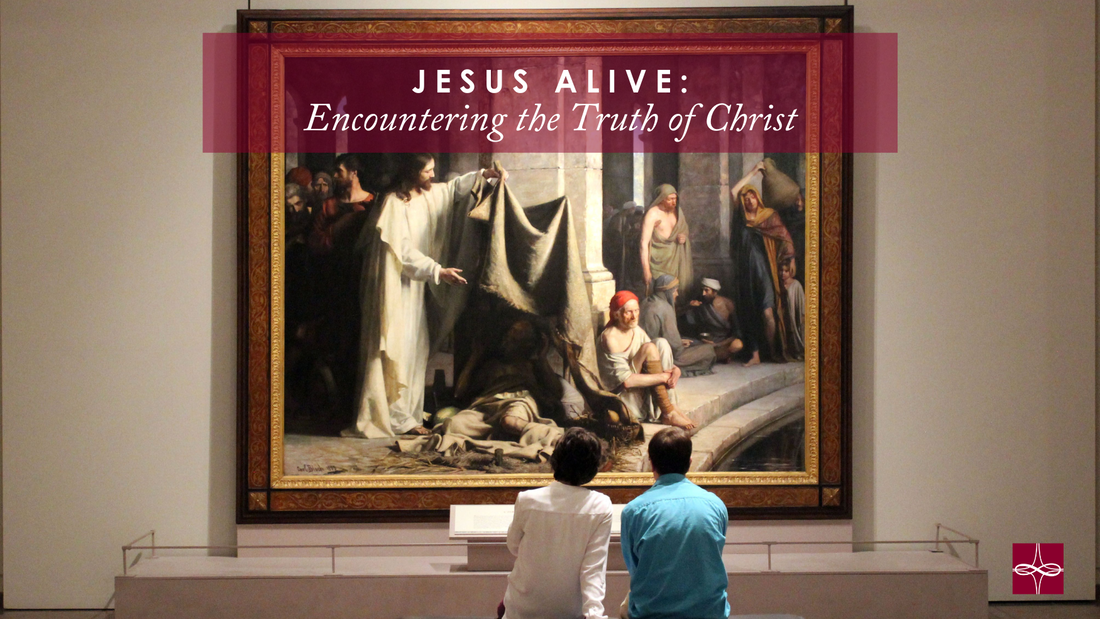
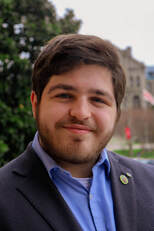
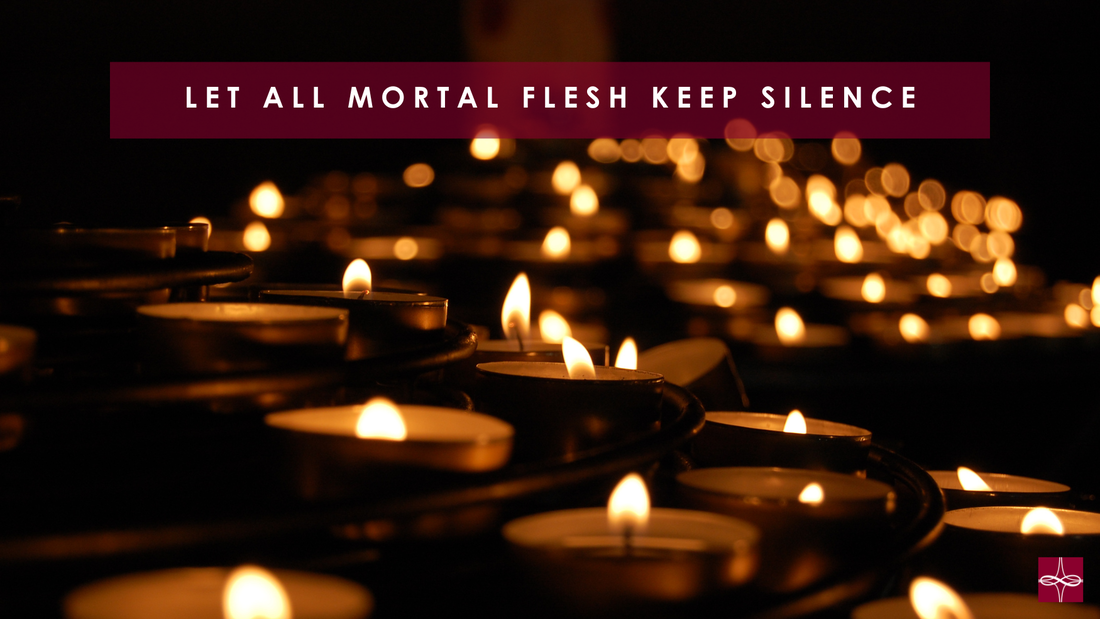

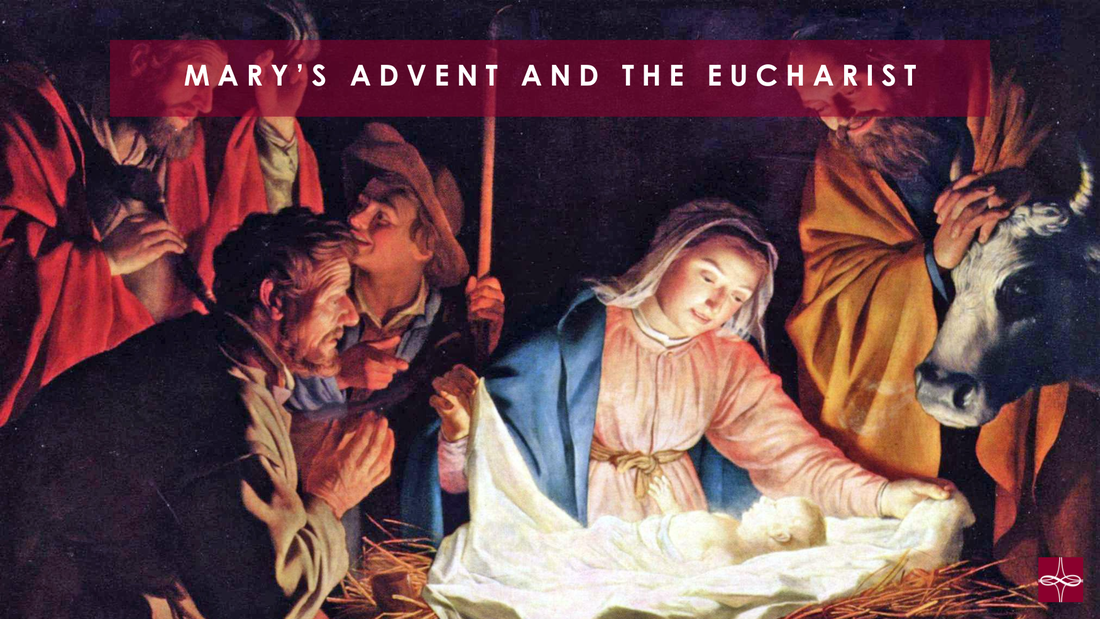

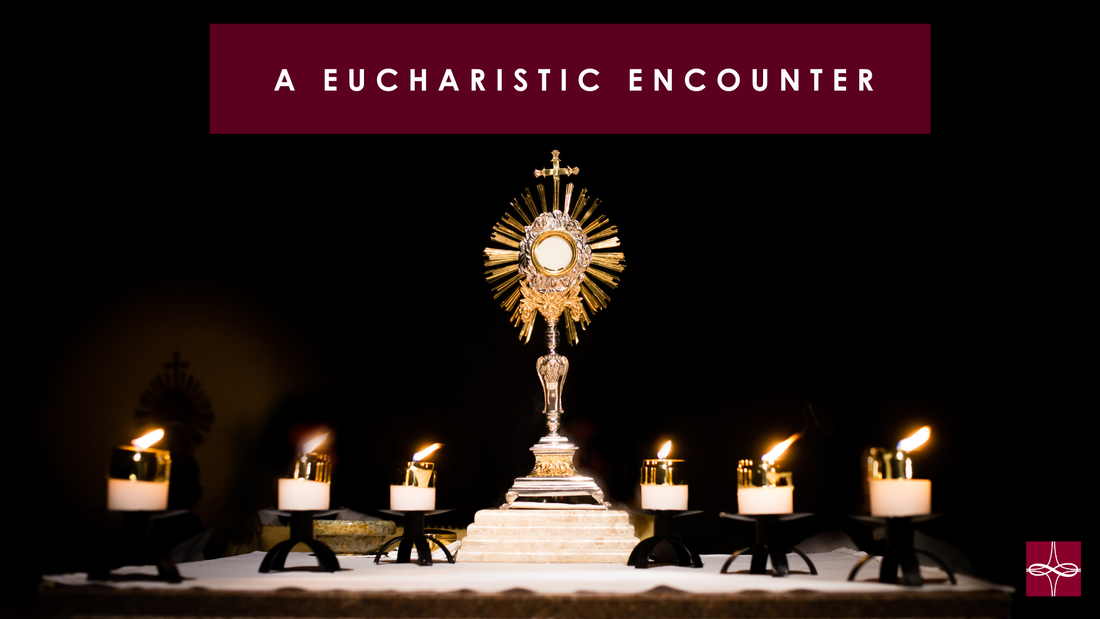
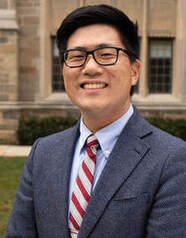
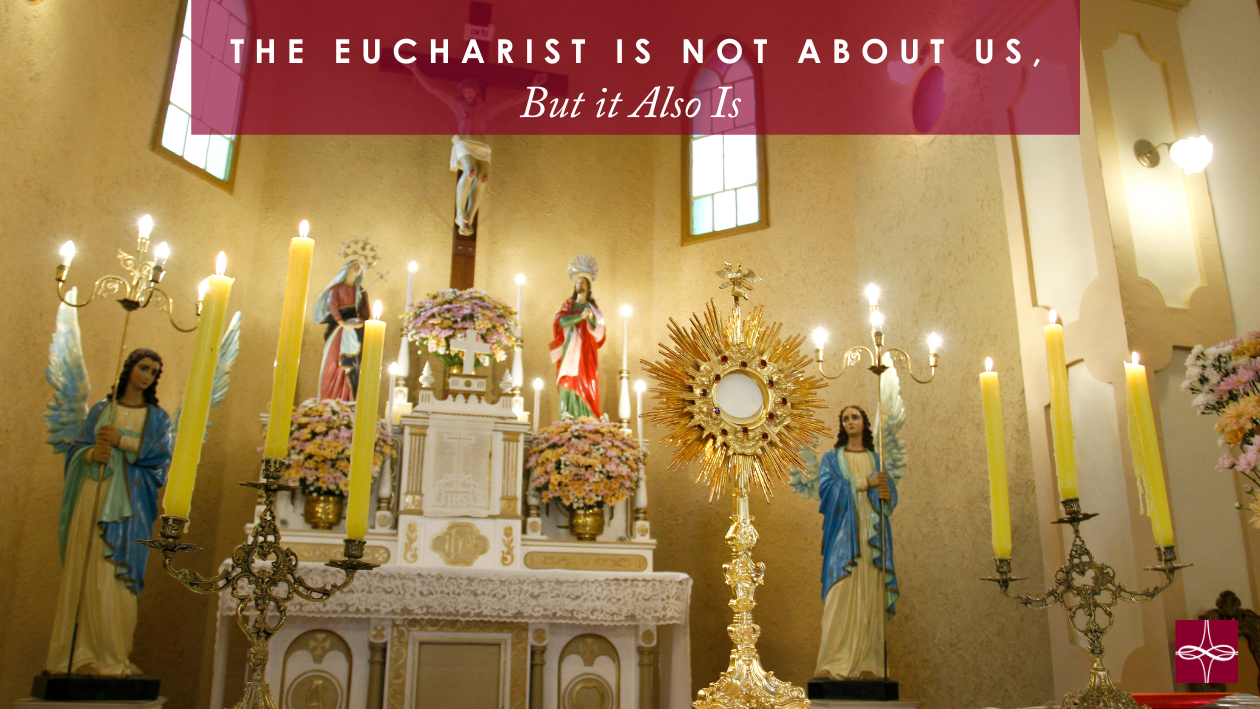
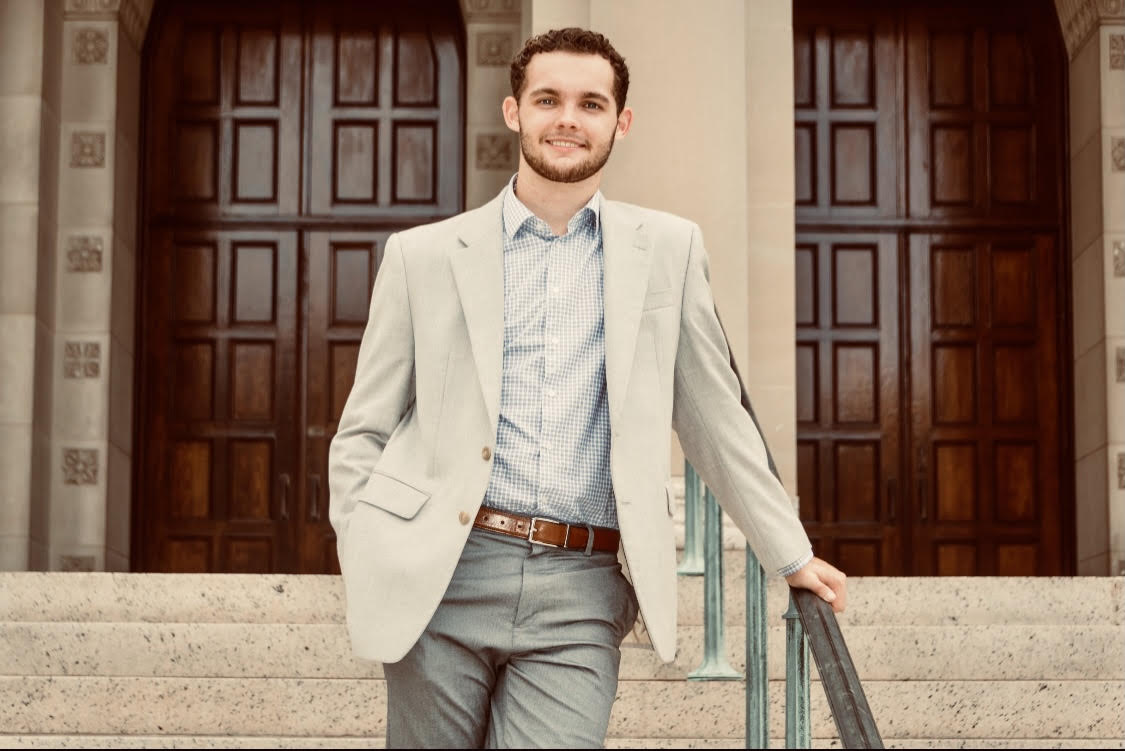
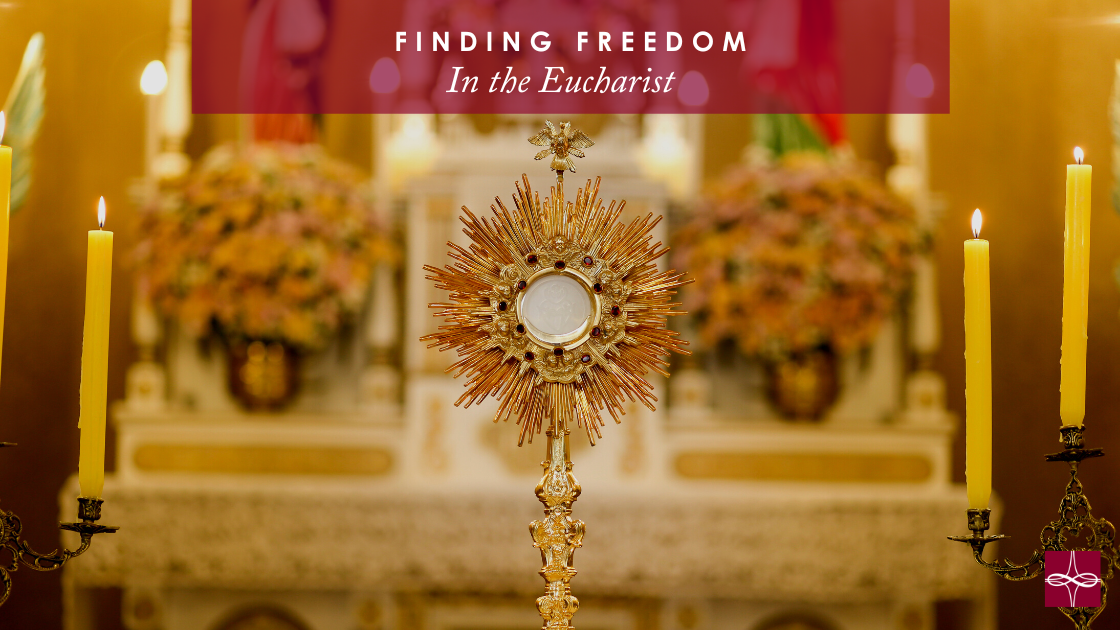
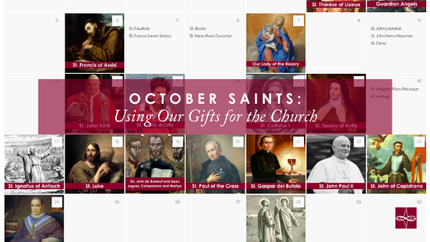

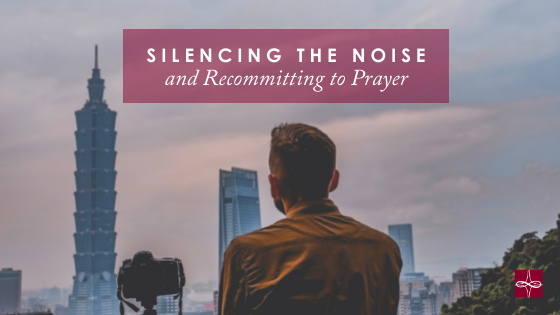

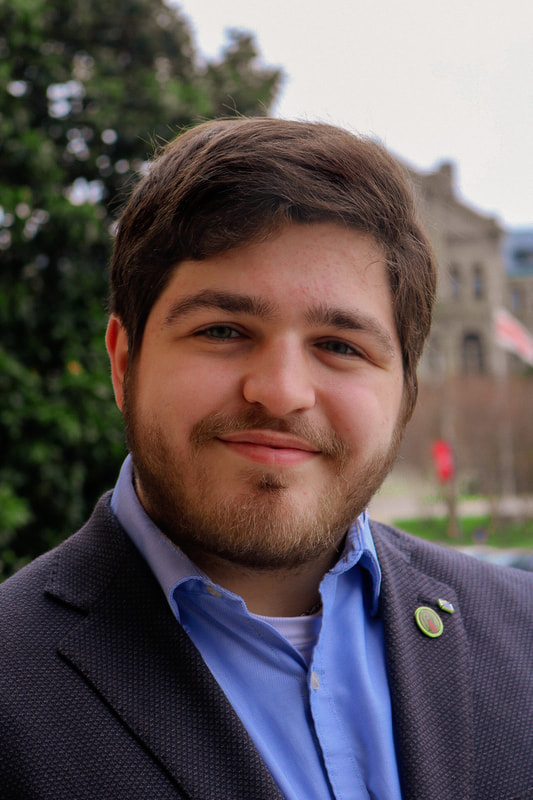


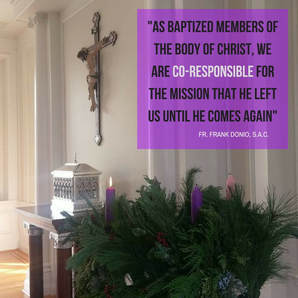
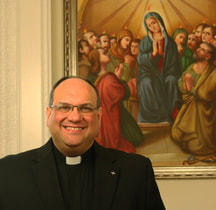


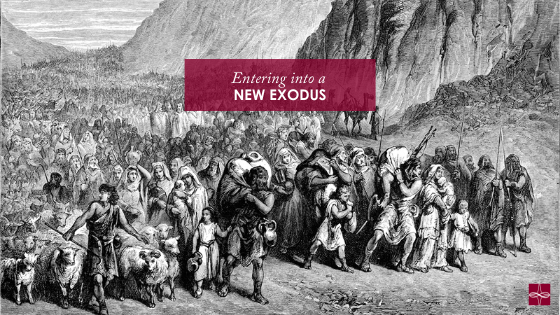
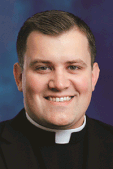
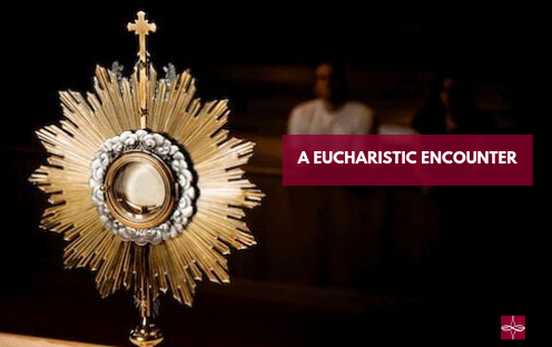

 RSS Feed
RSS Feed